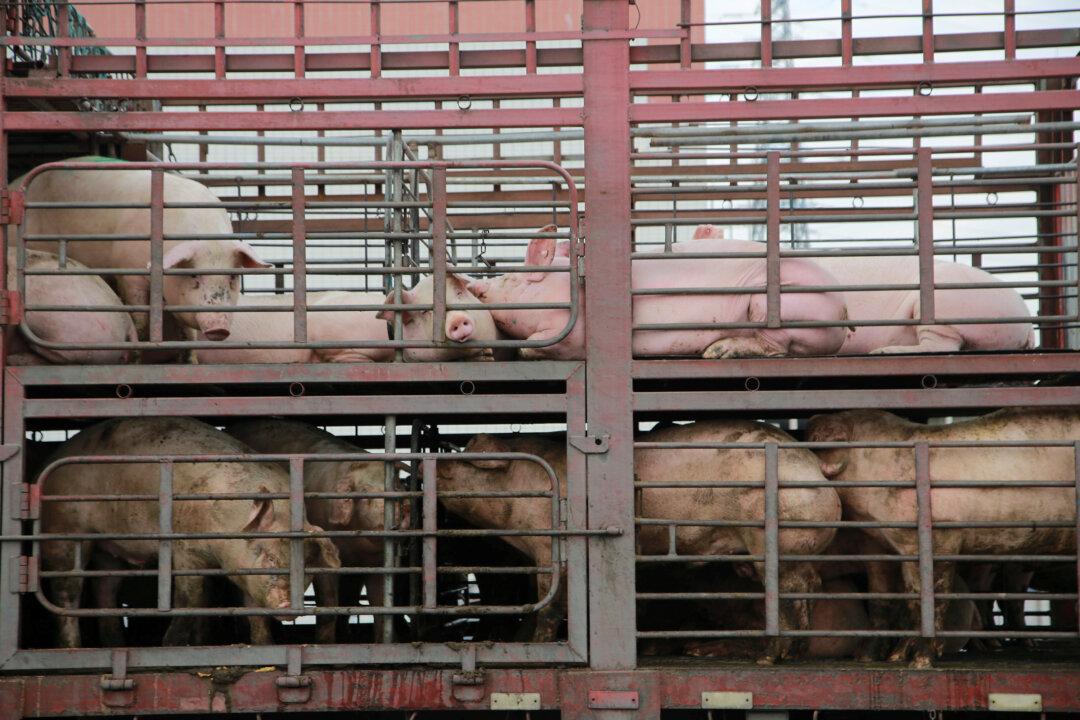BEIJING—China’s pig herd shrank by 32.2 percent in July from the same month a year ago, its agriculture ministry said on Aug. 15, as African swine fever continues to spread through the country.
The ministry also said the number of sows declined by 31.9 percent in July, a year after the nation reported its first outbreak of the disease, which is fatal to pigs but does not harm people.





